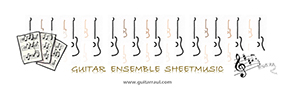The repertoire for the modern classical guitar is relatively limited. As a result, guitarists have transcribed music originally written for the piano for their instrument, in order to augment their repertoire. The solo piano works of Isaac Albéniz have been extensively transcribed and performed by many guitarists. Granada, the first movement from his Suite española for piano is a favourite amongst guitarists - sometimes even more so than amongst pianists. This dissertation offers a comparative analysis of the very first transcription of Granada by the renowned Romantic composer and guitar virtuoso Francisco Tárrega, and a more recent transcription by Stanley Yates. The aim of the study is to identify and critically evaluate various transcription techniques employed by these transcribers, in order to determine the extent to which their transcriptions of Granada are similar and different.
Firstly, the study will contextualise its research aims and objectives by providing biographical information on Albéniz, followed by a general discussion of his compositional style and how it reflects in his piano music. The history of the practice of guitar transcription and the influence important transcribers had on the development of this practice will then be outlined. Secondly, the study will offer a detailed analysis and discussion of the Tárrega and Yates transcriptions of Granada by comparing certain deviations from and adaptations of the original piano score through the interpretation of statistical data. This data, visually represented by graphs, will then be critically evaluated to determine the extent to which similarities as well as differences between these transcriptions occur. Finally, the findings of the study will shed light on the value of these two vastly different, yet very popular guitar transcriptions of Granada.
Marc Röntsch
A comparative analysis of two guitar transcription of Isaac Albeniz´s Granada
uctscholar.uct.ac.za/PDF/57629_Rontschi,%20M.pdf





